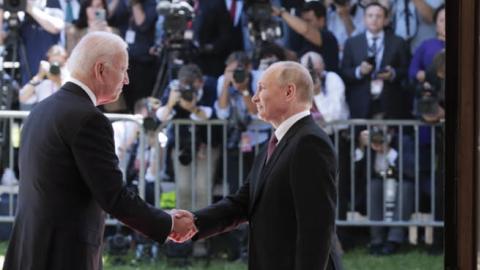As President Biden tries to prevent a Russian attack on Ukraine, his administration continues to wrestle with a world that has refused to conform to its expectations. Russia is not parked. Iran is not cooperating. China—whose activities around Taiwan, as Defense Secretary Lloyd Austin warned last week, look “like rehearsals” for more-serious aggression—has neither engaged with the Biden administration on common issues like climate nor been impressed by Washington’s get-tough policy.
Driving Vladimir Putin’s military buildup is the Kremlin’s conviction that time is not on its side. Largely because of Ukrainian bitterness at Mr. Putin’s 2014 invasion and the continuing war in the country’s southeastern region known as the Donbass, more Ukrainians are determined to escape what they see as Moscow’s suffocating embrace. Gradual changes in the civil service, the judiciary, the intelligence services and the educational system, implemented with Western encouragement and help, are quietly but steadily pushing Ukraine away from post-Soviet Russia and anchoring it more firmly in the West.
For Mr. Putin and the Russian nationalists whose support he needs, the consolidation of genuine Ukrainian independence is a threat. Russia needs Ukraine, they believe, to dominate the Black Sea, re-establish itself as the principal power in Europe, and defend the Orthodox and Slavic character of the Russian Federation itself at a time of rapid demographic change. A Ukraine aligned with the West, and especially with anti-Russian countries like Poland and the Baltic republics, is an unbearable humiliation and an unacceptable threat to Russian power.
Read the full article in the Wall Street Journal

















